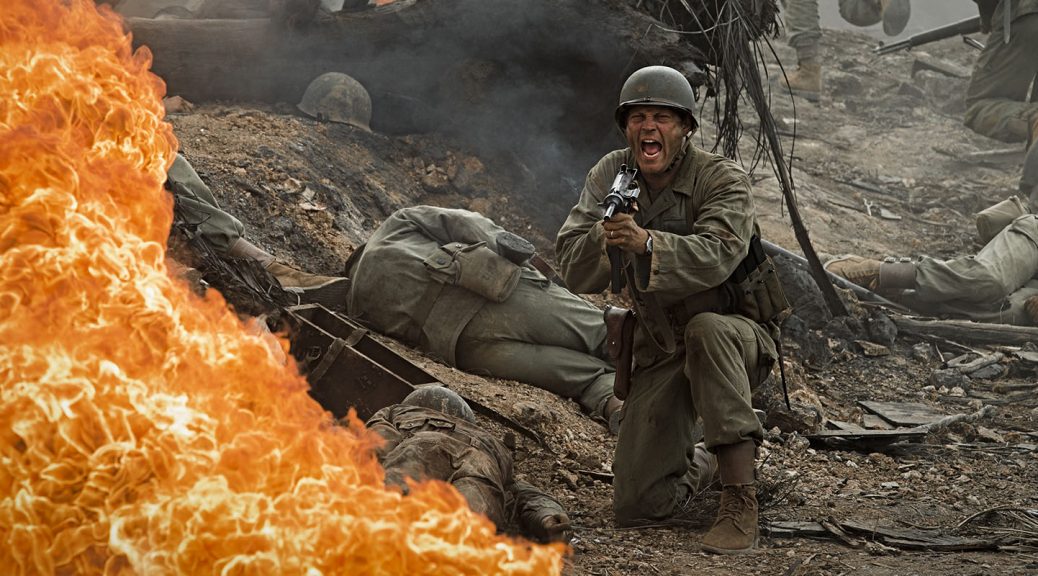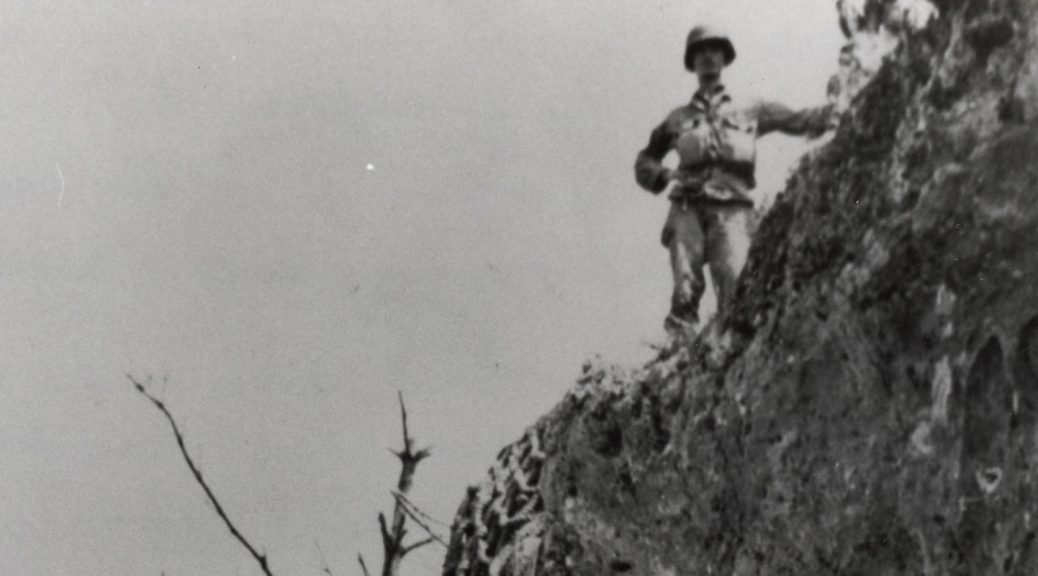
Doss chose a morally difficult and physically dangerous middle path, voluntarily entering the mess and muck of war, offering help to both friend and enemy.
By Kent Kingston.
When the posse of street thugs and temple lackeys discovered Jesus and His disciples at their secret olive orchard campsite, Peter lunged forward with a sword to defend his rabbi. But his clumsy slash failed to deal a fatal blow — he succeeded only in slicing off a man’s ear.
Jesus cut through the blood, shock and screaming to speak words that have echoed through the centuries: “Put away your sword,” He said to Peter. “Those who use the sword will die by the sword.”
You can read all about that in Matthew 26.
History balances peace and violence
Throughout history, Christians have generally seen these words as particular to the situation and have, at best, justified violence as a last resort in maintaining social order and defending against invaders. At worst, Jesus’ name has been brandished by perpetrators of tortures, massacres, pogroms and brutal wars.
But there have always been, it seems, Christ-followers for whom Jesus’ words suggest a new way of living, and dying. As they watch, through the pages of Scripture, Jesus’ refusal to defend Himself, to fight back, even as Roman spikes are hammered through His hands and feet, they catch a glimpse of another world where violence is overcome by love — “Father forgive them, for they don’t know what they are doing” (Luke 23:34).
Coliseum crowds wondered at the steadfast faith of the Christians who died in the arena — in prayer and apparently at peace as the lions approached. The legend is told of Magnus Erlendsson who, in the 1100s, refused to participate in a Viking raid on Wales, preferring instead to remain on the boat reciting psalms.
Over the centuries, a distinctly pacifist Christian movement emerged, led by what are today called the historic peace churches — Mennonites, Quakers and others. Governments struggled to deal with otherwise law-abiding citizens who refused to wield a weapon or participate in making war. Some conscientious objectors were executed, imprisoned or punished in other ways — their commitment viewed as unpatriotic, even treasonous. But, particularly in countries with a Protestant heritage and a commitment to individual conscience, governments began to make allowances for conscientious objectors, often permitting them to assist with important civilian projects.
A modern example
Enter Private Desmond Doss, a US soldier serving in World War Two. He posed somewhat of a quandary: yes, he wanted to support his country’s war effort against the Imperial Japanese invasion of the Pacific — he didn’t need to be drafted. He volunteered. But this patriotic American refused to use a weapon and requested a non-combat role. Doss rejected the label of “conscientious objector.” He preferred “conscientious co-operator.” Mel Gibson’s Hacksaw Ridge retells the difficulty he had in convincing his superiors and comrades of this point of view.
It’s easy to quibble with Desmond Doss’s logic: if he opposed war on principle — the usual conscientious objector’s position — why did he join up? Or if he truly supported America’s war effort, why not shoulder a weapon along with his share of the responsibility for what war entails? The grim task of killing people.
But Desmond Doss’s “conscientious co-operator” stance avoided the safety of both detached purity and comradely conformity. Instead he chose a morally difficult and physically dangerous middle path, voluntarily entering the mess and muck of war, offering help to both friend and enemy. A theologian might call this an “incarnational” approach; an echo of the decision of the eternal God to descend into the dirt, danger and debauchery of human reality, not as an avenging angel but as a defenceless baby in a manger.
Terry Benedict, who directed The Conscientious Objector, a documentary on Doss’s wartime experiences, recalls his surprise when the elderly veteran wouldn’t enter into discussion about the logic or theology behind his position. “Terry, God convicted me not to kill or carry a weapon. I’m not passing judgement on anybody else as to how God convicted them, but it’s just how God convicted me.”
It’s hard to argue with a statement like that. Or a life like that.


